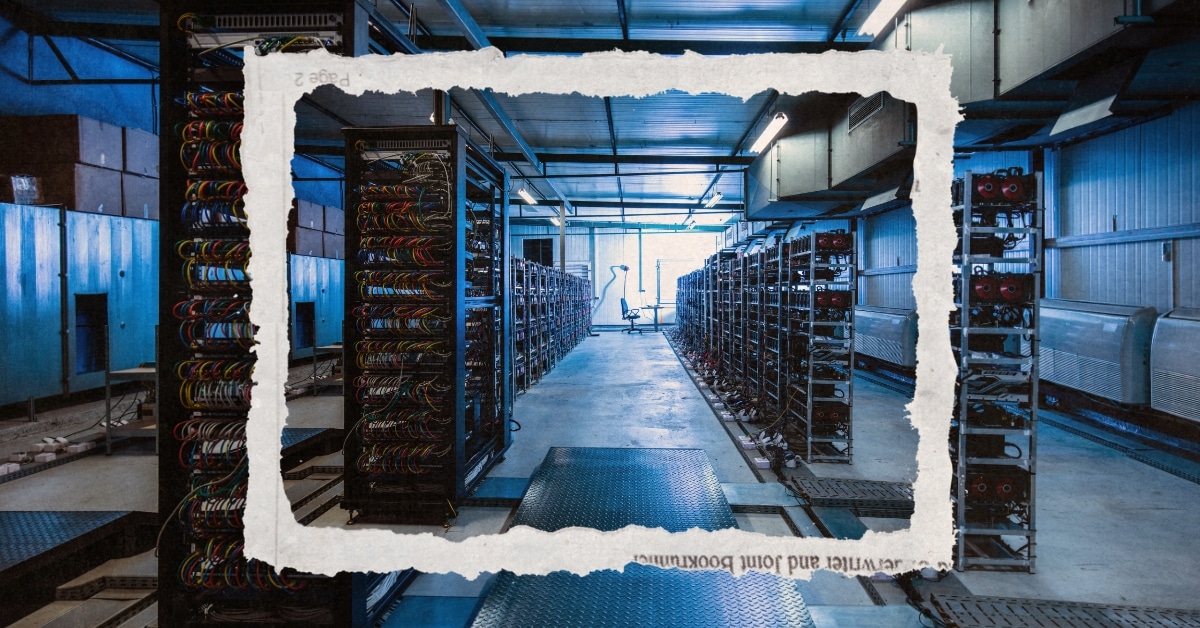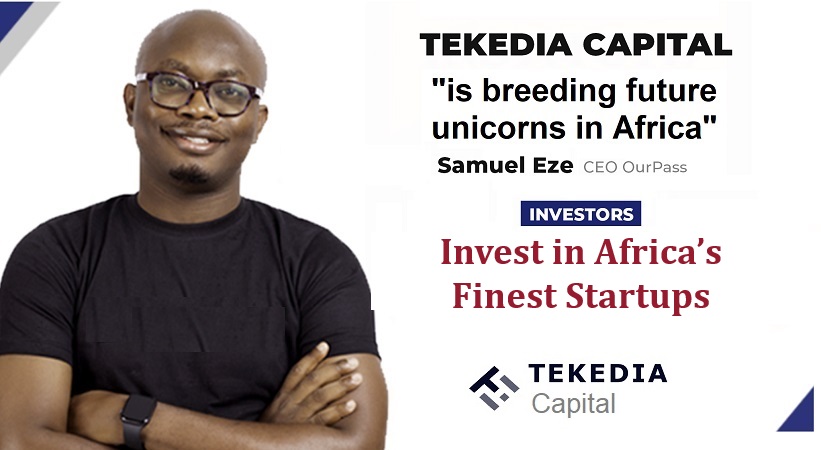News
Definition & Examples of Crypto

Paid non-client promotion: Affiliate links for the products on this page are from partners that compensate us (see our advertiser disclosure with our list of partners for more details). However, our opinions are our own. See how we rate investing products to write unbiased product reviews.
- Cryptocurrencies are digital assets that are created and run on a blockchain.
- Bitcoin and ether are two popular cryptocurrencies, but there are many others.
- Investing in cryptocurrency can be extremely risky, and the underlying technology is very new.
It’s important for investors to understand how cryptocurrencies work, who creates and controls them, and why you might want to buy cryptocurrencies.
While there may be opportunities to build wealth, there are a lot of risks involved with crypto investing, and you need to be mindful of scams.
What is cryptocurrency?
Cryptocurrency is a type of decentralized digital currency that investors can buy and sell along the blockchain. Unlike banknotes or minted coins that have a tangible physical form, cryptocurrencies can only be accessed using computers and other electronic devices.
A decentralized currency is a currency not issued by a government or financial institution. In fact, no single person, company, or government controls a crypto’s blockchain. Instead, it’s run by a decentralized network of computers worldwide. Anyone with advanced technology skills and coding experience can create a cryptocurrency.
The lack of a central authority can also make cryptocurrencies more secure. “It’s hack-proof because there’s no one central point of failure,” explains David Donovan, executive vice president at Publicis Sapient.
How do cryptocurrencies work?
While there are thousands of cryptocurrencies, many with unique traits, they all tend to work in similar ways. It’s hard to avoid some jargon when discussing cryptos, but the concepts can be relatively easy to understand.
Blockchain technology
A cryptocurrency’s blockchain is a digital record of all the transactions involving that crypto. Copies of the blockchain are stored and maintained by computers around the world. They’re often compared to general ledgers, part of traditional double-entry bookkeeping systems where each transaction leads to debit and credit in different sections of the books.
“It works like a general ledger — it’s that simple,” says Donovan. Perhaps you start with two coins and send one to someone. “On the blockchain, it would say I’m sending you one coin, and I now have one coin, and you have one coin.”
Each grouping of transactions is turned into a block and chained to the existing ledger. Once a block is added it can’t be reversed or altered — which is why people describe blockchains as “immutable.”
Some cryptos have their own blockchain. For example, there are Bitcoin and Ethereum blockchains. But there are also cryptos that are built on top of an existing blockchain rather than starting from zero.
Ether is the cryptocurrency native to the Ethereum blockchain, but is also available for trading on other exchanges like Coinbase, Binance.US, Ninjatrader and Robinhood.
Public transactions under pseudonymous
Cryptocurrencies have another defining feature. The blockchains are public ledgers, which means anyone can see and review the transactions that occurred. However, they can also provide a degree of anonymity.
“You have a private key, which is how you initiate transactions, and a public key, which is how someone identifies you in the market,” says Donovan.
A blockchain’s transactions are tied to a crypto wallet’s public key, but nobody necessarily knows who controls that wallet. This is why cryptos are often described as pseudonymous — the public key is a person’s pseudonym.
Coming to consensus
Cryptocurrencies commonly use one of two mechanisms to create a system of trust and determine which transactions are valid and added to their blockchain:
- Proof of work. This relies on people around the world, known as miners, competing to be first to solve complex cryptographic puzzles and add the next block to the blockchain. The winners are paid after the other members of the network confirm that the required amount of computing power was used to find the solution. “The way you make sure all the participants are validating the transactions is the hard work, effort, and money they’re spending solving the problem,” says Donna Parisi, global head of financial services and FinTech at Shearman & Sterling. However, proof-of-work systems require a lot of energy to power.
- Proof of stake. This is a newer and less energy-intensive mechanism. “Proof of stake is they validate transactions on the blockchain by people putting value on the line,” explains Parisi. “They stake some of the currency they own to make sure they only validate true transactions.”
Types of cryptocurrencies
According to CoinMarketCap, there were more than 25,149 different cryptocurrencies with a global market value of about $1.16 trillion as of May 30, 2023. Some of the most popular cryptocurrencies include:
- Bitcoin
- Dogecoin
- Ether
- Litecoin
- Tether
- Binance coin
- Dai
- TRON
- Cronos
- USD coin
- Bitcoin cash
Bitcoin, the first cryptocurrency, was launched in 2009 as an alternative type of decentralized and digital money. Since then, people have also created cryptocurrencies that serve other functions or are designed for specific types of transactions.
“Cryptocurrencies can have many different uses,” says Parisi. “Some are used in gaming environments to earn rewards in a game, while others facilitate payments. Some are designed for cross-border remittances … some are designed for micro payments.”
For example, stablecoins are a type of cryptocurrency that try to maintain a steady and fixed exchange rate with another asset, such as the US dollar. Governance tokens are another example of a specialized cryptocurrency. They give token holders voting power in a corresponding crypto project.
Insider’s Featured Crypto Apps
Chevron icon
It indicates an expandable section or menu, or sometimes previous / next navigation options.
Chevron icon
It indicates an expandable section or menu, or sometimes previous / next navigation options.
Editor’s Rating
4.14/5
A five pointed star
A five pointed star
A five pointed star
A five pointed star
A five pointed star
Editor’s Rating
4.34/5
A five pointed star
A five pointed star
A five pointed star
A five pointed star
A five pointed star
What is digital currency?
Digital currency is a type of currency that can only be accessed in an electronic form, such as through a computer or mobile phone. This money has no physical equivalent, unlike tangible forms of currency like banknotes or minted coins. But just like physical money, digital currencies can be used to purchase goods and services.
However, you’ll be limited to online platforms and communities, such as investing platforms, gaming sites, and gambling portals. Some of the most popular forms of digital currency include cryptocurrencies, central bank digital currencies (CBDC), and stablecoins.
“There’s a strive toward decentralization,” says Nisa Amoils, a managing partner at A100xx Ventures. “Digital currencies like cryptocurrencies continue to be a worthwhile investment for many investors.”
Digital currencies come in two forms:
- Centralized currency: Currencies issued by governments or financial institutions as part of the commercial banking system that are available to the general public.
- Decentralized currency: Currencies not issued by governments or financial institutions. Instead, decentralized currencies operate through peer-to-peer financial networks to eliminate the middleman (aka banks) and allow lending, trading, and borrowing directly with merchants.
Digital currencies like crypto are often appealing to investors who are wary of government-issued funds and are that are seeking alternatives.
“Some people who had been excluded from the traditional financial system, or have had their currencies devalued, are seeking an opportunity to participate in the markets, and this is a retail-driven phenomenon first,” says Amoils. “There’s this crisis of trust, and people want wealth creation for themselves. And so that spurred this whole kind of trading speculative movement.”
How to invest in cryptocurrency
You can start investing in cryptocurrencies through existing crypto exchanges and investing platforms. Some of the best cryptocurrency exchanges (such as Kraken and Coinbase) offer assets like staking rewards, goal-planning features, low fees, and more.
Some of the best investment apps that offer cryptocurrencies (such as Robinhood Investing) include a range of investment types, low fees, market access, and more.
You can create your own crypto
Anyone with coding skills and/or advanced technical knowledge can create their own cryptocurrencies — although this is not always an easy feat and isn’t recommended for beginners. The three ways to create crypto are:
- Building a new blockchain: The most advanced way to create crypto, but offers the most flexibility of nodes, architecture, tokenomics, and more.
- Modifying a blockchain: If you can’t create your own blockchain, you can modify an existing blockchain’s open-source code to your liking. Still, this method requires expansive technical knowledge.
- Building upon a blockchain: The simplest way to make your own coins or tokens is by expanding upon an already existing blockchain. But keep in mind that the success of your cryptocurrency will be reliant on the success of the original blockchain. Some blockchains that allow this are Binance and Ethereum.
Are cryptocurrencies secure?
The blockchain technology behind cryptocurrencies can help ensure that the coins and systems remain secure. “What’s never been refuted is the value of blockchain,” says Donovan. “The way the ledger system is set up and every transaction is recorded. And the fact that it’s immutable.”
However, that doesn’t mean you don’t need to worry about security. The crypto world is rife with scams. Of course, that’s also true of traditional financial systems and currencies. Someone asking you to pay with a gift card or wire transfer is a red flag that you’re dealing with a scammer. But several factors could make crypto scams especially worrisome.
For example, cryptocurrency transactions can’t be reversed. There’s also less regulation of cryptocurrencies and platforms than of traditional financial services in the US. Plus, some people may feel pressure to act quickly and send or invest their money because they’re worried about missing out on an opportunity.
“One way to avoid a scam is to invest in more well-established cryptocurrencies,” says Parisi. “You still may be subject to scams or fraud in terms of how you hold it, send it, or receive it.” But you can have some certainty that the cryptocurrency itself isn’t a scam.
Are cryptocurrencies a good investment?
Cryptocurrencies may present a good investment opportunity, and there are many ways to invest in the crypto world.
You could buy a coin (or coins) and hold onto them, hoping they’ll increase in value. Or you could use your coins in a decentralized finance (DeFi) platform to earn interest through staking or lending. You also might take a more traditional route, such as an exchange-traded fund (ETF) that is tied to cryptocurrencies. There could even be opportunities to invest in projects or supporting industries rather than in the cryptocurrencies themselves.
“From an investment perspective, crypto is rapidly evolving,” says Parisi. “You shouldn’t put an amount of assets you’re not willing to lose. It should be, relatively speaking, a small portion of your portfolio.”
Before making any investment, consider the potential pros and cons:
Should you invest in crypto?
While cryptocurrency investing is a hotly debated topic, it’s worth understanding what’s going on so you can make an informed decision. If you decide to get started, you could fully jump in or just dip your toe.
“Learn about crypto by opening up wallets, accounts, trading currencies, and learning more about the use cases,” says Parisi. “But do it in a reasonable way. We’re still in the early days, and regulation of crypto is still evolving.”
Donovan suggests opening an account with a regulated and publicly traded company like Coinbase. But, he says, “It’s really about being smart and using the system to take baby steps.”
Crypto FAQs
Bitcoin is a cryptocurrency, an electronic version of money that verifies transactions using cryptography (the science of encoding and decoding information). As Bitcoin educator, developer, and entrepreneur Jimmy Song says, Bitcoin is “decentralized, digital, and scarce money.” Bitcoin is decentralized because this code is run by thousands of computers (i.e., ‘nodes’) spread across the globe, digital because it exists as a set of code that determines how it operates, and scarce because its code caps its overall volume to 21 million bitcoins.
When you use bitcoin to buy something, it records the transaction on a blockchain, which is essentially a ledger or database whose entries can’t be modified or erased.
Ethereum is an open-source, decentralized computing platform network. The Ethereum network works like the Bitcoin network in that it’s built on blockchain technology, essentially a digital public ledger where financial agreements can be verified and stored entirely by software — without the intervention of a third party.
Privacy coins are cryptocurrencies that obscure transactions on their blockchain to maintain the anonymity of users and their activity. Participants in a transaction will know the amount transacted and the parties involved. However, the same information will be unobtainable to any outside observer.
The anonymity that privacy coins provide offers a potentially appealing outlet for money laundering or other criminal transactions. As such, privacy coins are a point of contention in the ongoing debate around cryptocurrency privacy and regulation.
A crypto wallet is a software program or physical device that allows you to store your crypto and allow for the sending and receiving of crypto transactions. A crypto wallet consists of two key pairs: private keys and public keys. A public key is derived from the private key and serves as the address used to send crypto to the wallet.
The important part of a wallet — and the part where new users often find themselves getting into trouble — is the private key. A private key is like the key to a safe deposit box. Anyone who has access to the private key of a wallet can take control of the balance held there. But unlike a safe deposit box, crypto users who hold their own private keys and make transactions using non-custodial wallets (i.e., a wallet not hosted by an exchange or other third-party) become their own bank.
Hash rate is a measure of the total computational power being used by a proof-of-work cryptocurrency network to process transactions in a blockchain. It can also be a measure of how fast a cryptocurrency miner’s machines complete these computations.
Miners use computers to run computations on complex mathematical puzzles based on transaction data. These systems generate millions or trillions of guesses per second as to what the solutions to these puzzles could be. These are hashes, alphanumeric codes randomized to identify a single, unique piece of data.
Yield farming is a means of earning interest on your cryptocurrency, similar to how you’d earn interest on any money in your savings account. And similarly to depositing money in a bank, yield farming involves locking up your cryptocurrency, called “staking,” for a period of time in exchange for interest or other rewards, such as more cryptocurrency.
Crypto staking is similar to depositing money in a bank, in that an investor locks up their assets, and in exchange, earns rewards, or “interest.” “Staking is a term used to refer to the delegating of a certain number of tokens to the governance model of the blockchain and thus locking them out of circulation for a specified length of time,” says Nicole DeCicco, the owner and founder of CryptoConsultz, a cryptocurrency consultancy in the Portland, Oregon area.
A particular network’s protocol locks up an investor’s holdings — similar to depositing money in a bank, and agreeing not to withdraw it for a set time period, which benefits the network in a couple of ways, according to DeCicco. First, this can increase the value of a token by limiting the supply. Second, the tokens can be used to govern the blockchain if the network uses a proof-of-stake (PoS) system. A PoS system — as opposed to a proof-of-work (PoW) one, which incorporates “mining” — can be fairly complicated, especially for crypto newcomers.


Louis DeNicola is the president of LD Money Media LLC and an experienced writer who specializes in consumer credit, personal finance, and small-business finance. He is a Nav-certified credit and lending specialist, a multi-year attendee of an 18-hour advanced credit education seminar, and a volunteer tax preparer through the IRS’s VITA program.
Louis works with various publishers, credit bureaus, Fortune 500 financial services firms, and FinTech startups. In addition to Insider, you can find his work on Experian, FICO, Credit Karma, FICO, and Lending Tree.
You can connect with Louis on LinkedIn or reach out to him directly at ladenicola@gmail.com.
Read more
Read less


Tessa Campbell
Junior Investing Reporter
Top Offers From Our Partners


Earn up to 4.60% APY on savings balances and up to a $300 bonus with qualifying direct deposit. FDIC Insured.
News
US Cryptocurrency Rules Delayed by ‘Never-Ending’ Lawsuits

Ripple CEO says cryptocurrency industry still seeking regulatory clarity from US
Speaking to Bloomberg News on Wednesday (July 17), Author: Brad Garlinghouse he said America is behind behind other countries which have already adopted cryptocurrency regulations.
“What we’re seeing, where it’s the UK, Japan, Singapore… even the European Union, more than two dozen countries have come together to provide a framework for cryptocurrency regulation,” Garlinghouse said.
“It’s frustrating that we as a country can’t get that regulatory framework in place. And instead, we have this never-ending lawsuit coming from the SEC that doesn’t really address the problem.”
Ripple has been the target of some of these legal disputes. Securities and Exchange Commission (SEC) sued the company in 2020, accusing it of conducting a $1.3 billion operation offering of unregistered securities tied to its XRP token.
However, last year a judge ruled that only Ripple’s institutional sales of XRP, not retail sales, violated the law, a decision widely seen as a victory for the cryptocurrency industry.
As PYMNTS noted at the time, that ruling has “far-reaching repercussions impact across the digital asset ecosystem, which has long maintained that its tokens do not represent securities contracts.”
However, Garlinghouse told Bloomberg on Wednesday that the company cannot wage multimillion-dollar legal battles over each token.
He spoke to the news agency from the Republican National Convention in Milwaukee, where the party is backing the candidacies of former President Donald Trump and Ohio Sen. J.D. Vance, both of whom are considered pro-cryptocurrency.
But Garlinghouse argued that cryptocurrencies “should not be a partisan issue,” and noted that he had recently attended a conference in Washington that included Democrats, including White House officials.
“I think they were there, listening to the industry… it was refreshing to start having that conversation,” she said.
President Joe Biden earlier this year he vetoed a measure which would have ended the SEC’s special rules for crypto-asset custodians. This legislation was supported by both the digital asset industry and the banking industry.
Ripple early this year donated $25 million to the cryptocurrency industry’s super PAC Fair Smoothiewith Garlinghouse stating at the time that such donations would continue every year, as long as the industry had its detractors.
Second Open SecretsWhich monitor spending For campaigns, the PAC has spent $13.4 million this year, much of it to help defeat Rep. Katie Porter’s (D-Calif.) U.S. Senate campaign.
News
The Future of Cybersecurity in the Cryptocurrency Industry

The cryptocurrency space has had a tumultuous journey, with its fair share of ups and downs. As we look to the future, one area that remains a constant focus is cybersecurity. The digital nature of cryptocurrencies makes them inherently vulnerable to cyber threats, and as the industry evolves, so does the landscape of potential risks.
In 2022, the cryptocurrency market faced significant challenges, with over $2 trillion in market value lost. This event served as a wake-up call for the industry, highlighting the need for robust cybersecurity measures. The future of cryptocurrency security is expected to see a shift towards more regulated and established institutions taking the reins of crypto technology and blockchain infrastructure.
The decentralized nature of cryptocurrencies offers numerous benefits, such as transparency and financial inclusion. However, it also introduces unique security challenges. The risk landscape is filled with threats such as hacking, phishing, ransomware attacks, malware, and social engineering. These threats not only lead to financial losses, but also damage the reputation and trust within the cryptocurrency ecosystem.
Mini-MBA Tekedia edition 15 ((September 9 – December 7, 2024) started recordings; Register today for discounts reserved for early bird customers.
Tekedia AI in Business Masterclass Opens registrations Here.
Join the Tekedia Capital Syndicate and IInvest in Africa’s best startups Here.
The decentralized nature of cryptocurrencies offers many benefits, but it also presents unique security challenges. Cyber risks such as hacking, phishing, and ransomware pose threats to the integrity of digital assets. The infrastructure that supports cryptocurrencies is not immune to vulnerabilities, including smart contract flaws and exchange hacks.
To address these vulnerabilities, the infrastructure that supports cryptocurrencies must be strengthened. Smart contract vulnerabilities, exchange hacks, wallet breaches, and flaws in the underlying blockchain technology are significant concerns that must be addressed to ensure the security and integrity of digital assets.
As cybercriminal tactics and techniques become more sophisticated, the cryptocurrency industry must stay ahead of the curve. The future will likely see more targeted attacks, exploiting weaknesses in infrastructure, networks, and human factors. This requires a proactive and multifaceted approach to cybersecurity.
To mitigate these risks, several measures must be adopted:
Strengthening security measures: Developers, exchanges, and wallet providers must improve security protocols, use strong encryption, implement multi-factor authentication, and conduct regular security audits.
Education and awareness: Users should be educated on best practices for protecting their digital assets, including using strong passwords, recognizing phishing attempts, and using hardware wallets for secure storage.
Looking ahead, the cryptocurrency industry is expected to see an increased focus on robust security measures. Blockchain projects and exchanges are likely to invest in advanced encryption techniques and decentralized storage solutions to protect user assets. The future impact of cyber risk on cryptocurrencies will depend on the collective efforts of stakeholders to address vulnerabilities and strengthen security measures.
Collective efforts by stakeholders in the cryptocurrency space are crucial to address vulnerabilities and strengthen security measures. While challenges persist, advances in cybersecurity technologies and practices offer hope for a more secure and resilient cryptocurrency ecosystem.
The future of cybersecurity in the cryptocurrency industry depends on finding a balance between innovation and regulation. It requires a collaborative effort from all parties involved, from developers to end users, to create a secure environment that fosters trust and growth in the industry. As we move forward, it is critical that lessons learned from past events guide the development of stronger security measures, ensuring the longevity and stability of cryptocurrencies as a vital part of the modern economic toolkit.
Like this:
Like Loading…
News
Bullish XRP and RLBK price predictions rise, outpacing the broader cryptocurrency market, prompting Shiba Inu holders to switch!

Bitcoin’s one-week surge from $60,000 has pushed other cryptocurrencies into an uptrend. However, for many altcoins, this trend has been temporary. Altcoins such as XRP and Shiba Inu (SHIB) have experienced price drops. However, Rollblock, a new altcoin on the Ethereum blockchain, has thrived during this period, attracting thousands of investors looking for long-term growth.
XRP’s Nearly 30% Growth Over Last Week Drops as Selling Pressure Increases
XRP is seeing further price decline as Ripple investors withdraw their profits from the token. The surge in XRP’s price to $0.64 in the past week has provided investors with a perfect opportunity to increase their returns in the short term. With the ongoing sell-off in XRP, XRP has jumped over 8% in the past day and is now trading at $0.59. However, analysts tracking XRP indicators predict that XRP could still extend its gains by over 30% in the coming weeks.
Shiba Inu (SHIB) marks its third consecutive day of losses
Shiba Inu (SHIB) is in a period of adjustment after a week of strong gains. In the last 24 hours, SHIB has seen a jump of over 7%, reflecting a natural market fluctuation. Analysts are observing a death cross on the Shiba Inu chart, which historically signals the potential for future opportunities as the market stabilizes. As investors explore new possibilities, some are diversifying into promising altcoins like Rollblock (RBLK) to strategically rebalance their portfolios and capitalize on the emerging trend.
Rollblock (RBLK) Up Another 7% as New Investors Join Pre-Sale
Rollblock (RBLK) has taken the cryptocurrency market by storm, having attracted investors from more popular altcoins like Shiba Inu (SHIB) and XRP. Rollblock’s growth is attributed to its utility in the $450 billion global gaming industry.
Rollblock aims to use blockchain technology to bridge the gap between centralized and decentralized gambling. With blockchain technology, Rollblock secures every transaction in its online casino, providing transparency and convenience to millions of players who are uncomfortable placing bets on other iGaming platforms.
This innovative use of blockchain technology in the industry has grown Rollblock to over 4,000 new users in less than two months. With plans to add sports betting, this number is expected to grow exponentially in Q3.
Rollblock uses a revenue sharing model that splits up to 30% of its casino’s weekly profits with token holders. This happens after Rollblock buys back $RBLK from the open market and uses half of it for rewards. The other half is burned to increase the price of $RBLK.
Rollblock price has seen four increases in the past month with $RBLK tokens now selling for $0.017. Analysts predict that at the current growth rate, Rollblock could increase by over 800% before the presale ends. For investors looking for a long-term token with growth potential, phase four is the best time to buy Rollblock before its price skyrockets!
Discover the exciting Rollblock (RBLK) pre-sale opportunities now!
Website:https://Rollblockpresale.io/
Social: https://linktr.ee/Rollblockcasino
No spam, no lies, just insights. You can unsubscribe at any time.
News
Texas Crypto Miners Turn to AI as Crypto Declines

As cryptocurrency mining becomes less profitable, Texas cryptocurrency mining companies are switching to supporting artificial intelligence companies.
Bitcoin miners, with their sprawling data centers and access to significant energy resources, are ideally suited for computationally intensive AI operations, and as cryptocurrency mining becomes less profitable, companies see this shift as a logical answer to their problems.
On Thursday, Houston-based Lancium and Denver-based Crusoe Energy Systems announced a multibillion-dollar deal to build a 200-megawatt data center near the West Texas city of Abilene to support advanced artificial intelligence applications such as medical research and aircraft design, CNBC reported. The plant represents the first phase of a larger 1.2 gigawatt project.
Lancium and Crusoe’s move into AI mirrors a broader trend among bitcoin miners. The combined market capitalization of the top U.S.-listed bitcoin miners hit a record $22.8 billion in June. Companies like Bit Digital and Hut 8 are diversifying into AI, with Bit Digital securing a $92 million annual revenue deal to supply Nvidia GPUs and Hut 8 raising $150 million to expand its AI data center.
But the growing popularity of these operations also presents challenges, particularly for the Texas power grid. Last month, the Electric Reliability Council of Texas announced that the state is expected to nearly double its energy production by 2030 to meet the high energy demands of data centers and cryptocurrency operations.
Lieutenant Governor Dan Patrick expressed concern about the projections.
“Cryptocurrency miners and data centers will account for more than 50% of the additional growth. We need to take a close look at these two sectors,” He wrote on Twitter/X. “They produce very few jobs compared to the incredible demands they place on our network. Cryptocurrency miners could actually make more money selling electricity to the network than they do from their cryptocurrency mining operations.”
Analysts predict significant growth in data center power capacity, which is expected to account for up to 9% of U.S. electricity consumption by 2030.
The operations also pose challenges for nearby cities. Earlier this month, TIME reported that a crypto-mining facility was seriously compromising the health of residents in the city of Granbury. TIME reported more than 40 people with serious health problems, including cardiovascular disease, high blood pressure and hearing loss. At least 10 of the residents needed to go to the emergency room or an urgent care facility.
The disturbances were caused by the extreme noise generated by the crypto-mining facility’s fans, which are used to keep the machines cool. While the proposed data center in Abilene would use liquid cooling systems, it’s still unclear whether the facility’s operations would pose a health risk to local residents.
-

 Nfts1 year ago
Nfts1 year agoShardLab Launches ZK-Based Tool for Digital Identity and NFT Vouchers
-

 News1 year ago
News1 year agoWallet recovery firms are abuzz as stranded cryptocurrency investors panic in the bitcoin boom
-

 Bitcoin1 year ago
Bitcoin1 year agoBitcoin, Ethereum, Solana and Cryptocurrency Markets Look Ready to ‘Send’ as Stars Align, According to Investor Chris Burniske
-

 Altcoins1 year ago
Altcoins1 year agoThree Altcoins Poised for Significant Growth in 2024: ETFS, OP, BLAST
-

 Altcoins1 year ago
Altcoins1 year agoAccumulate these altcoins now for maximum gains
-

 Nfts1 year ago
Nfts1 year agoOG Crypto Artist Trevor Jones Unveils Groundbreaking Collection of Ordinals | NFT CULTURE | NFT News | Web3 Culture
-

 Bitcoin1 year ago
Bitcoin1 year agoBillionaires are selling Nvidia stock and buying an index fund that could rise as much as 5,655%, according to some Wall Street analysts
-

 Videos9 months ago
Videos9 months agoKamala just won the boner! [Bad For Crypto]
-

 Videos1 year ago
Videos1 year agoLIVE FOMC 🚨 Could be CATASTROPHIC for Altcoins!
-

 News1 year ago
News1 year agoA Guide for Newcomers & Beginners – Forbes Advisor
-

 Videos1 year ago
Videos1 year agoAttention: a historically significant BITCOIN signal has just appeared!
-

 Videos1 year ago
Videos1 year agoSTOCK MARKET FUD! ⚠️ [Why This Is GREAT For Bitcoin Traders!]









